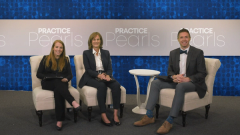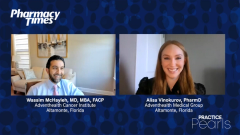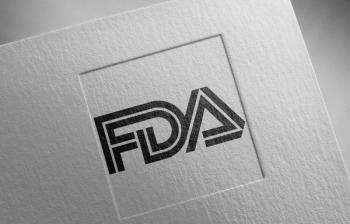
Pharmacist Support in Management of HR+/HER2- Breast Cancer
Clinical pharmacists play a significant role in treatment management of patients with HR+/HER2- breast cancer.
Episodes in this series

Alisa Vinokurov, PharmD: The role of the pharmacist in clinical practice for the management of HR [hormone receptor]-positive, HER2-negative breast cancer is pretty holistic. We handle the supportive care. We do all of the premedications that need to be sent off to the pharmacy. We give them an encompassing patient education. Then for the drug interactions, when physicians have any questions, we’re there to double-check. We’re there to verify that it’s OK to give.
[As far as] contraindications, as Dr McHayleh likes to say, we’re the label experts. We’re there to know the contraindications that may occur with these drugs that are being prescribed. In special populations, we don’t have a very wide range. It’s mostly women, and they’re typically healthy. Some of them may not be, but most of the time they’re very healthy. When they need adjustments, we’re there to make any dosing adjustments. [As far as] treatment adherence, that’s a great service to provide as a pharmacist, to make sure at their checkups that they’re taking their medications correctly. If there’s a day that they skipped, we inform them about the proper instructions [regarding] what happens if you skip a day, and the number of hours between when you last administered your drug to when you can take the next one. We can educate them on that and be there to support them.
Because this is such a new field for a pharmacist to be niched and very involved in, some advice for a clinical pharmacist would be to push the boundaries. You’re there to provide medication management. You’re there to practice as a clinician, as Dr McHayleh likes to call us. We’re there, we know the treatments, the adverse effects, and the dose adjustments. So we need to show our value and show that we can be a clinician practicing alongside these oncologists and benefit the patients in a way that we previously weren’t able to without a pharmacist. We focus on the dosing and the toxicity. Because the oncologists are very busy and see so many patients, things like that sometimes get missed. Having a pharmacist there every day, all day, [tracking] these patients and following up on them is something this field really needs. That would be advisable for a lot of practices in the oncology field.
Transcript edited for clarity.
Newsletter
Stay informed on drug updates, treatment guidelines, and pharmacy practice trends—subscribe to Pharmacy Times for weekly clinical insights.



























